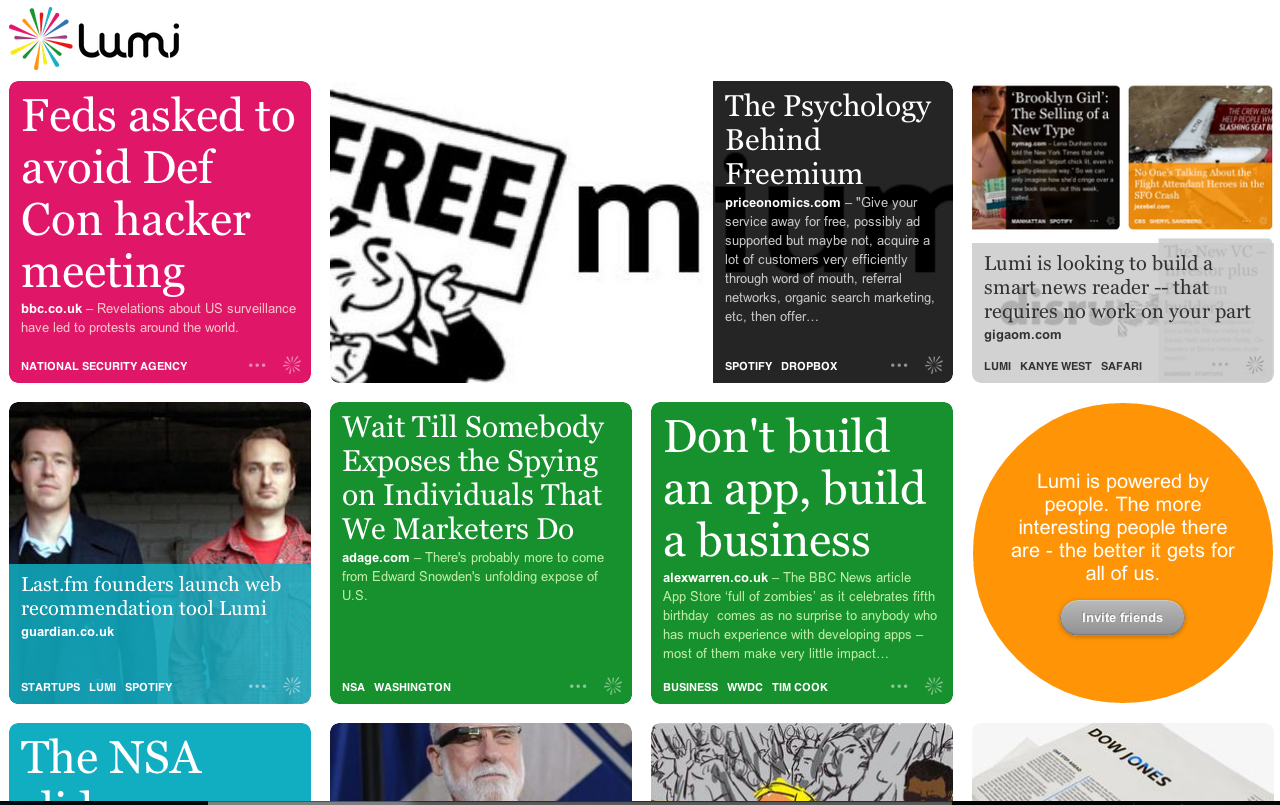Earlier this year Felix Miller and Martin Stiksel, the London-based co-founders of music streaming and discovery service Last.fm, launched a prototype of Lumi, a new service that applied a concept similar to Last.fm’s scrobbling to the wider internet, to help people find new things that might interest them online, presenting its results a visual, button-style navigation format. Today, in their first big startup effort since leaving Last.fm after selling it CBS in 2007, the pair are taking Lumi out of prototype and opening it up to the public at large, with extensions available for Chrome, Firefox and Safari, and plans for a mobile app coming soon.
The closure of Google Reader has put a spotlight on RSS and apps that people use to help make their way around the long tail of internet content. Lumi is tapping into a similar concept, but taking a very different approach.
RSS requires users to proactively select sites and information they wanted to track online — and some might argue that this proactive, sometimes technical element is what has prevented RSS readers from really going mainstream. Lumi, meanwhile, has been created with inactivity in mind. People can do nothing and still get relevant, current content delivered regardless, using algorithms that track where you travel online to provide links to what else you might like to see.
As long as you have downloaded the extension, which monitors whatever else do you on your computer, “you don’t have to do anything extra,” Stiksel told me in an interview. “You don’t click buttons or subscribe to new feeds. You can go away for two weeks and it’s even more fresh when you return. Because the system knows more about you.”
This may sound a bit creepy in our day and age of Prism awareness, and it will be interesting to see how and if that impacts Lumi’s growth. In its favor, it has implemented privacy settings almost to a fault: I once forgot my password on my account, and had to dig up my original “welcome” email in order to trigger the ability to recover it: no way of doing that directly through Lumi’s web interface. Miller also notes that there is no direct user tracking in any way at all.
Although today Lumi is transferring from “prototype” to full product, I think the potential of the service is more interesting longer term.
When you log into the service you get a menu in the left that pops out different categories — books, business, design, music and so on. Right now, those are directly related to what pages or content you look at covering each of those subjects. What will be interesting down the line is how content in each of these gets populated semantically. For example, what kind of books might a fan of Grizzly Bear like to read?
“That’s one of the things that we are exploring,” Stiksel tells me. “If you like gardening, you may like this kind of art or this kind of music” is one more step along this idea of scrobbling.
Another is how Lumi may account for the fact that in some households people share computers. My daughter’s interest in Wizard of Oz clips on YouTube may not really say much about me, for example.
And the pair have yet to take the concept mobile — perhaps the most obvious place for services that help users discover content without having to do much typing. Stiksel and Miller say that native mobile apps are on their roadmap “very soon” but because they are for now bootstrapped, most of their energies have been spent on the desktop experience, since this is still where people do most of their web browsing.
On the subject of funding, for now the pair are continuing to bootstrap. “We are focused on getting the product right first,” says Miller.

